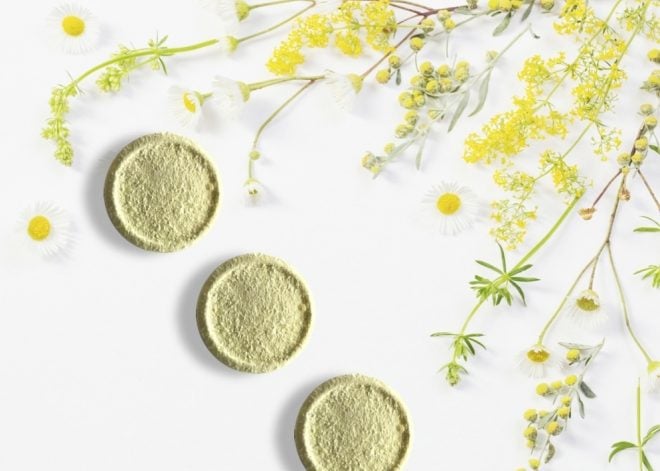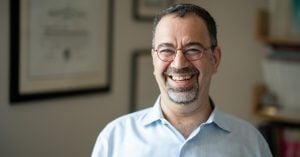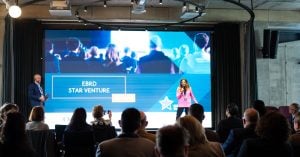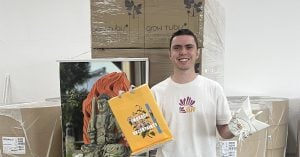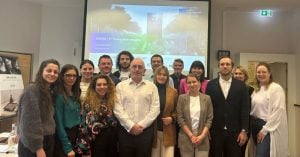Starting July 3rd, EU member states need to transition out single-use plastics, in an effort to combat plastic pollution and especially marine litter. Since half of the selected items are packaging items, we expect to see more and more green innovations from packaging manufacturers, e-commerce players, distributors, and FMCG producers.
In this series, The Recursive researches and shares alternatives to single-use plastics. Each story will focus on one SEE-based startup that supports innovation in sustainable packaging. You will read more about their company’s DNA, their solutions to eliminating single-use plastics, growth plans, but also the challenges they had to overcome.
Today, we continue with the story of estiverde, an eco-friendly e-commerce startup in Bucharest, Romania. Plastics are very common in both primary and transport packaging for consumer beauty and homecare products. estiverde partners with and sells only environmentally friendly products made from natural ingredients and in plastic-free packaging. Their main goal is to encourage the use of products made with care for the environment and our body, by providing alternatives to traditional supermarket goods.
If you want to catch up with our plastic-free series, read the story of DiFOLD, a reusable, origami bottle manufacturer, and of ReVive, a sustainable food packaging distribution company.
The Recursive: How did you come up with the idea of an eco-friendly e-commerce platform?
Miruna Iliescu, co-founder of estiverde: We started by exploring this area for ourselves. We wanted better products, more sustainable products, and we were looking on eco-friendly e-commerce platforms from different countries. We soon realized it was not easy to find eco-friendly products to buy in Romania. You had to spend a lot of time researching and understanding the value of the products. So, we thought maybe there are other people in Romania who don’t have the time to do all this research and that we need a local platform for eco-friendly products to make things easier.
The main idea is that we want a world without avoidable plastics. We already know there are some alternatives to the traditional products we find in the supermarket. We want to help the community here to waste a bit less.
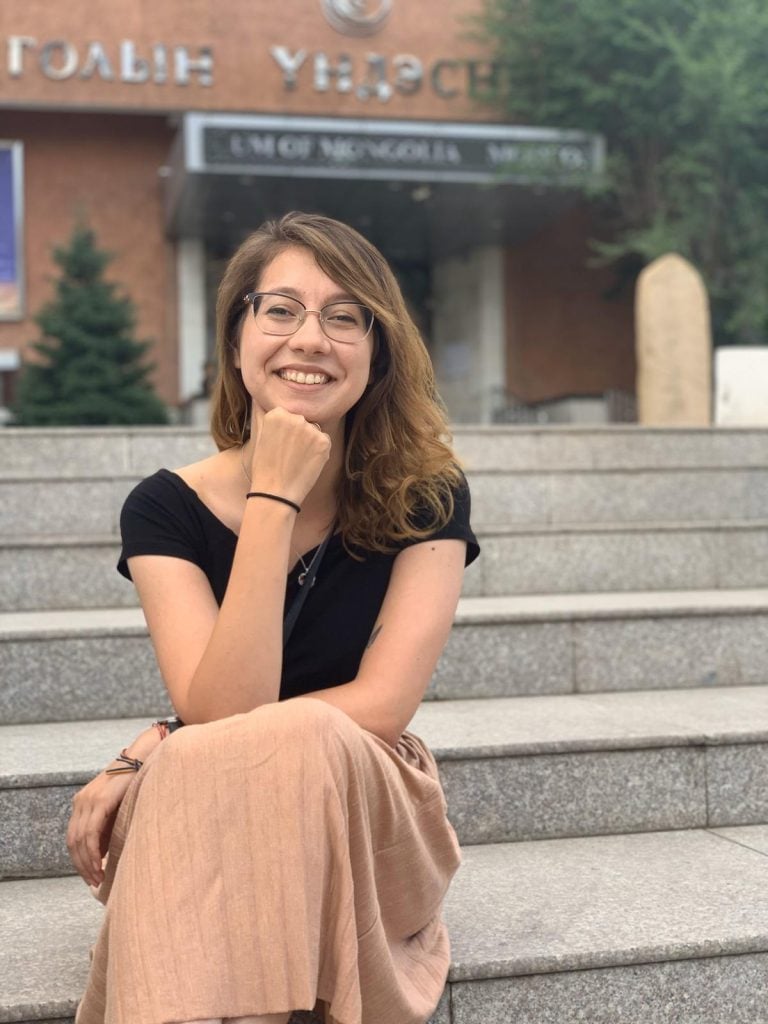
What markets will you be serving, now and in the future?
We are focusing our eco-friendly e-commerce platform on the Romanian market. The idea is to make items produced in Europe available to the Romanian market. We also plan to open a physical store in Bucharest. And we only focus on the end user.
The main idea is that we want a world without avoidable plastics. We already know there are some alternatives to the traditional products we find in the supermarket. We want to help the community here to waste a bit less.
Tell us more about the products you offer on this platform.
I love the ones we started our journey with towards an eco-friendly e-commerce platform. There is one brand that we brought from the Czech Republic, Amazinc! that produces sunscreen, body oil, and lip balms from natural ingredients. We like them because they also do not have any plastic packaging. Instead, they use materials that can be recycled effectively – aluminium and paper.
And across our products, you will not find any plastic packaging. We sell all sorts of alternative packaging beauty and household products, from bamboo cotton buds to paper-wrapped handmade soaps.
We also made some accessories ourselves by partnering with local businesses. We have this focus on working with local artisans. So, we collaborated with Atelierul de Panza and Alexandra from Magic Mint to create some tote bags that can replace single-use plastic bags.
How do you decide whether to work with a company or not?
We only have European products. From Romania, we have brands such as Ophori, from Brasov. It is a social enterprise producing bath products such as soaps and scrubs locally. We tried to keep it as local as possible, but we found it difficult. Some local businesses cannot provide the quantities we need, others require very large volumes in order to set up a partnership. But we only want to work with regional suppliers in order to avoid a bigger carbon footprint from transportation and also because it is easier to verify they respect certain rules.
We look at how they are making the products. Most of them are handmade. We also work with brands that are known to be sustainable like Georganics from the UK. We don’t look for a specific certification, but we look at what sustainability requirements they fulfil and whether they have visibility in the supply chain. When we can’t find specific information, we email them to understand why that is.
And we want to sense they have this care for the environment. We contact them to see how they work and how they interact with us. We care about the values of the founders themselves because at the end of the day they are the ones who make the decisions. It’s great when we discover that the people behind these products are genuinely passionate about protecting nature.
How do you make sure to reduce the impact of your deliveries?
When we deliver we avoid plastic and we usually work with upcycled packaging. In Bucharest, we also try to deliver mostly by bicycle to avoid emissions. Across Romania, it is more difficult because we don’t have an option of an integrated eco-friendly delivery system yet. However, I know there are some efforts in this area, to develop eco-friendly delivery options in big cities across Romania.
How are you financing and growing the business?
We are financing it with our own economies. We saved money to invest in products and then to bring in our platform.
We have attended several events for startups. I use the resources there to improve our communications and marketing. They are also a great opportunity for networking and finding people who want to be part of the community. At this point, we need people to understand that we have this issue as a society and that we can do something about it.
I tried to make several collaborations, for example with retreat communities, which people attend to get closer to nature. We also have this partnership around “No plastic July” with Micile Bucurii. And we also partner with women entrepreneurs because it is important for us to support local businesses whenever we can.
What key challenges are Romanian entrepreneurs facing when running their businesses?
In working with distributors from several countries, I noticed that we have some issues on the business management side. As an eco-friendly e-commerce platform, I need partner manufacturers to understand that it’s a win-win because they can focus on the product and I can focus on communicating and selling it. But for the partnership to function, we need an agreement, some structure, a plan. It is a bit difficult when people are just focusing on doing business over the telephone. The way I see it, we need to be more organized and data-driven. We sometimes lack this sort of approach in Romania.
So, after noticing these issues around me, I looked for programs to become a mentor for Romanian businesses. Right now, I’m in a program called Bridge for billions. It’s their first year in Romania, but it’s an international program that aims to support small businesses. Each participant gets one local mentor and one international mentor to help and guide them in developing and pitching a business plan to investors. I am now a mentor for OILRIGHT, a company in Timisoara that collects used oil and turns it into candles. I also work with LEVISEZ, a Romanian brand in Iasi that creates sustainable clothes from upcycled materials.
I help them on the communications and marketing topics, while the international mentors help them on the business development and financial sides.
What advice would you give entrepreneurs looking to innovate in an emerging space?
I opened my first company at 22 years old and I know how difficult it can get to run it, to grow it, to adapt it. And especially as a woman, when you also have more challenges in your personal life, more responsibilities in the family life to juggle alongside the company.
I think one of the most important things that I learned since I launched my first company is that even if you start with a pre-tested and validated idea and set a course, things can change. Even for us – we started right before COVID-19, so we really had to adapt a lot of things in our business plan in a really short time. Some of them were difficult to change, some of them were easier.
But we heard some businesses saying that they would just wait for everything to go back to normal and start again afterwards. And yet almost 2 years later things are not the same. It’s really important to adapt your business plan on a regular basis and sometimes this means even every month.

